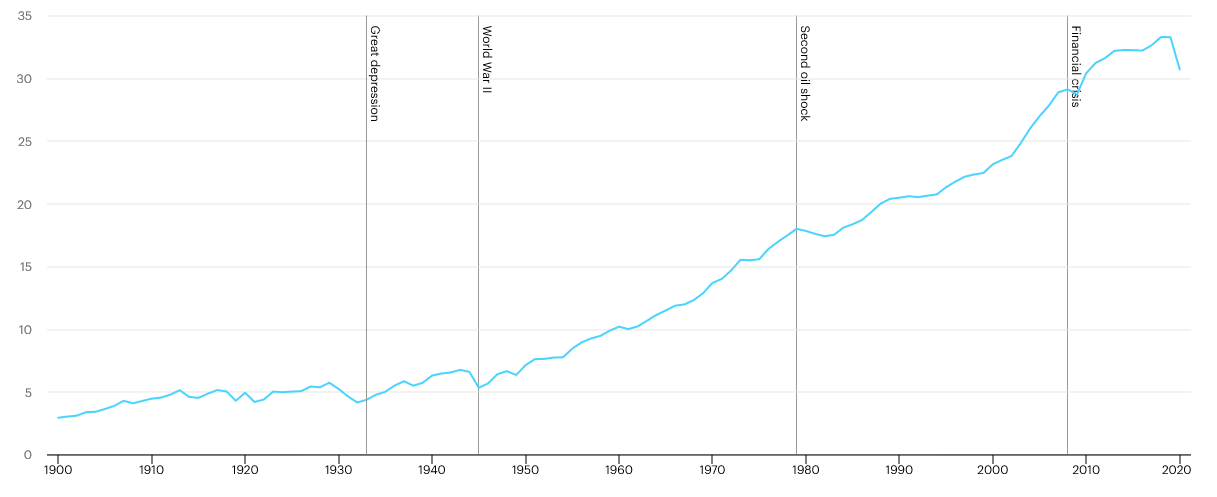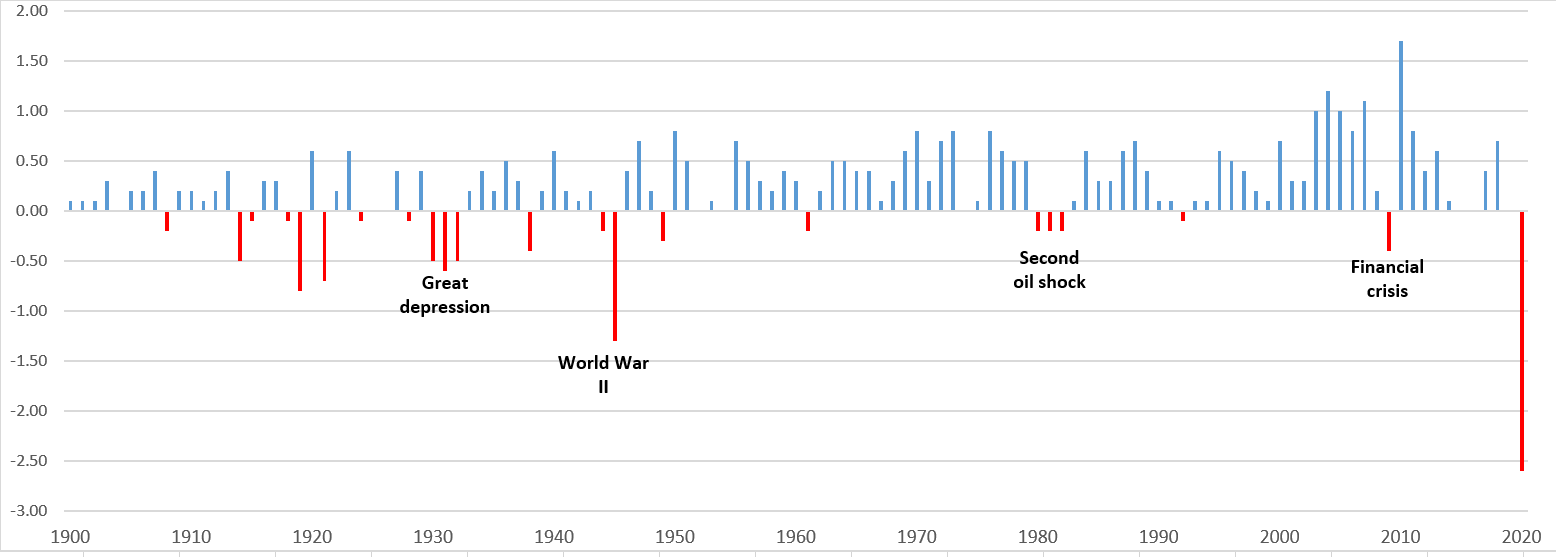THE IMPACT OF COVID-19 ON GLOBAL ENERGY DEMAND AND EMISSIONS
The deep COVID-19 crisis has resulted in the largest decline in global energy demand over the past 70 years. In the first quarter of 2020, it decreased by 3.8 percent relative to the first quarter of 2019. As a result, global CO2 emissions in 2020 are expected to fall to an unprecedented level of 8 percent (around 2.6 gigatons) relative to 2019. This would mark the lowest level of carbon emissions since 2010; it would also be the largest reduction to date, six times higher than the previous record reduction of 0.4 gigatons following the 2009 financial crisis.

Energy-related emissions (gigatons)
Annual change in CO2 (gigatons)

This drastic cut in emissions is one of the inadvertent consequences of the pandemic, not the result of intentional efforts by governments and businesses around the world to transition to a cleaner energy infrastructure or of their commitment to curb fossil fuel consumption. Experts are already warning that emissions will quickly rebound unless determined action is taken to decarbonize our economies and to achieve the goal set in the 2015 Paris Agreement of limiting global warming to 1.5 degrees Celsius.
A SILVER LINING FOR THE ENVIRONMENT?
As governments grapple to reignite their economies, government stimulus packages in several countries, including EU member states, China, the Republic of Korea, and Nigeria, contain direct or indirect support measures aimed at reducing carbon emissions. However, these measures do not go far enough to address the biggest source of greenhouse gas (GHG) emissions, i.e., energy consumption. That would require measures such as heavy carbon taxes or phasing out of fossil fuel subsidies. Without the implementation of such measures, consumers will continue using (low-priced) energy less efficiently, thwarting efforts to mitigate or reverse climate change. This reluctance of governments is partly due to the fear that an increase in energy prices could harm the domestic manufacturing sector.
Is there a trade-off between reducing carbon emissions and the performance of manufacturing firms, particularly in developing countries with large fossil-fuel subsidies? This question is addressed in a working paper using data on manufacturing firms in Mexico and Indonesia, two big developing countries with large fossil-fuel subsidies. We find that increases in energy prices, for example as a result of eliminating fuel subsidies, do not necessarily worsen the performance of manufacturing firms in developing countries.
This blog was originally published on Brookings on 19 November 2020 by:
 |
Massimiliano Cali Senior Economist - World Bank |
 |
Nicola Cantore |
 |
Leonardo Iacovone Lead Economist - World Bank |
 |
Mariana Pereira-Lopez |
 |
Giorgio Presidente |
 |
Niki Rodousakis |


